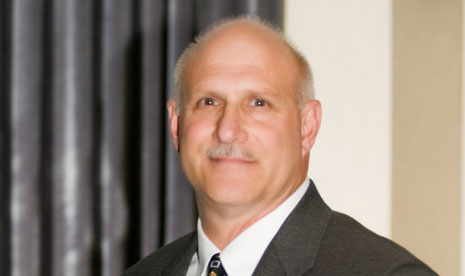Disappointment is the shared outcome of Bossier Parish Police Jury administrator Bill Altimus and Webster jury president Jim Bonsall after Webster’s governing body voted last week to halt a joint venture to secure Bayou Dorcheat as a source of surface water.
In May 2015, after years long discussion and study, the Webster jury voted to join Bossier Parish in a project to make a water treatment facility on Camp Minden operational, benefiting both parishes.
“By withdrawing support, we went back on our word,” Bonsall said. “That does not sit well with me. The action taken (last week) does not reflect what the jury set out to do last year. We wasted Bossier Parish’s time and money and I am ashamed of that.
“As the jury president, I respect that some jurors did not agree with me, for whatever reason,” Bonsall continued. “And so even though I am disappointed, I have to follow their lead in what steps to take next.”
Altimus was not able to place the issue on the agenda of the Bossier jury last week due to time constraints, but has been able to speak to Bossier jurors.
“My recommendation to all of them was to hold on on pursuing the permit or expenditures of anymore time or funds on this,” Altimus said. “Perhaps in the future there may be interest from the Webster jury and we can revisit the issue then.”
Altimus said after lengthy discussion in years past, it was difficult to determine if Webster was in or out, which is why Webster’s May 2015 vote was encouraging. Only two jurors abstained from voting on the issue.
With three new jurors taking office after the decision was made, reservations were brought to the table at Webster’s monthly road committee meeting, including concerns about the permit application to withdraw water being in Bossier parish’s name.
“I’m unsure of the specific wording- whether the application is in our name or not,” Altimus said. “We hired engineers to file the permit for us, as a joint venture. Only Webster didn’t have to pay anything for it.
“It would have been a joint project run by both parishes, or that was the understanding on our part,” he continued. “I think that last year that was the understanding on the part of Webster’s jury as well.”
Altimus said his recommendation to Bossier jurors includes placing a hold on the permit application, which was submitted in October and is under review.
“I think it was a great opportunity for us to jointly get that plant up and running,” he said. “This project has been going on for years and years, and we know there is a need in Webster and Bossier parishes for the water.”
In 2010, Bossier paid the Shaw Group for a water source study for Bossier and Webster parishes, and shared the report with the Webster jury and the public.
Shaw’s study reviewed existing customers, identified potential new customers, produced a future growth analysis, presented a supply and demand review and gave assessments on operating costs. The Shaw report identified 25 utilities as potential users of Camp Minden water; 17 of those are in Webster Parish.
“The majority of the interest and need was found for Webster,” Altimus said. “I think they are missing an opportunity.”
Concerns from Webster municipalities, including the City of Minden and the Town of Sibley, resulted in resolutions being passed stating opposition to Bossier’s use of water from Dorcheat.
Altimus said fears about how Bossier might use a permit are unwarranted.
“We can certainly not going to fight them for it or on it,” he said. “There are opportunities that present themselves (for economic development), but you have to have the infrastructure there in order to take advantage of those opportunities. If you are not prepared to meet opportunities by having infrastructure in place, I think you will struggle to grow.”
Despite the scenic waterway being located in Webster Parish, the water belongs to the State of Louisiana, which is why a permit to take water must be granted by Louisiana Department of Wildlife and Fisheries.
“I don’t think Webster has ever put any resources into pursuing bringing the water treatment plant to use, which is why this was a joint venture,” he sais. “They have the location, but we have the funds to take a look at it.”
The Shaw Study cost Bossier parish approximately $200,000, while $150,000 was allocated to continue pursuing the joint venture with Webster. Of the $150,000, engirneering firm KSA was paid to prepare the permit and funds remained to bring the water plant back to life.
“This was supposed to be done in phases, taking one bite at a time,” Altimus said. “After the needs assessment, we applied for the permit. If we were granted a permit, the next phase was to study what it would take to get the plant operational. If we were not granted a permit, the other phases would have been pointless.”
Bonsall and Altimus hope that the project might not be left dead in the water, but acknowledge the juries are steering the course.



